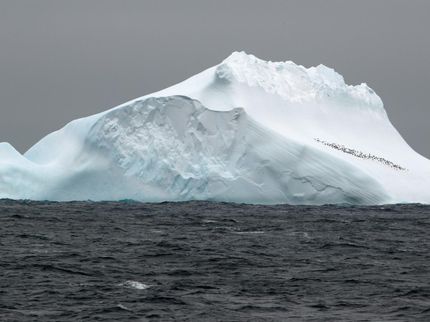Researchers to Decode Antarctic Ice Metagenome with the 454 Sequencing System, to Explore the Effects of Climate Change
Advertisement
For many years, researchers at the Alfred Wegener Institute (AWI) for Polar and Marine Research in Bremerhaven, Germany have been studying polar and marine environments to improve our understanding of ocean-ice-atmosphere interactions and the animal and plant kingdoms of the Arctic and Antarctic. Now, researchers at the AWI, led by Klaus Valentin and his colleague Thomas Mock from the University of East Anglia, have announced their plans to perform the first metagenomic analysis of the diverse set of organisms living within arctic sea ice. They plan to support the project using the award sequencing received as a runner-up winner for the 10 Gigabase Grant Program from 454 Life Sciences, a Roche company. Metagenomic sequencing, which allows researchers to obtain a detailed view into the phylogenetic composition and functional diversity within a complex sample, has been largely enabled by 454 Sequencing Systems in recent years.
Previously performed projects at the Alfred Wegener Institute and University of East Anglia have completed the genome sequence of a sea ice alga and a bacterium. Moreover they sequenced transcriptomes of sea ice species and communities - the goal of these studies was to decode the active genes contributing to the genetic adaptation of these species to the extreme Antarctic environment. As part of their new metagenomic study, the researchers plan to analyze the complete set of organisms found in the arctic ice and hope to find genes which are "turned off" within the organisms.
“In order to gain knowledge about the potentials which slumber in the genome, we will sequence both active and inactive genes,” explained Valentin. “If environmental factors like temperature, carbon dioxide concentration, or light intensity change in the future, it is important to know which genomic potentials polar biocoenosis have to resist the climatic change.”
During the past several decades, climate change has had a tremendous impact on Arctic ecosystems, including sea ice, forests and tundra. As Arctic temperatures rise, the plant, animal, and bacterial species which inhabit the region are forced to either adapt to the changes in the environmental or perish.
“We are pleased to see the technology of 454 Sequencing being applied to the important field of polar biocoenosis research,” said Chris McLeod, President and CEO of 454 Life Sciences, a Roche company. “Their results will help to understand better the impacts of global warming in that region.”



























































